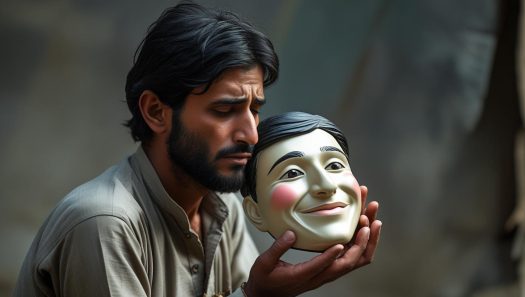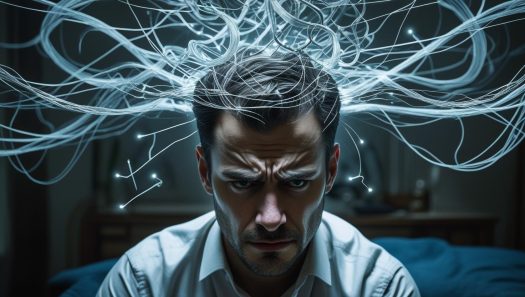“Nobody cares about a man’s mental health until it turns into anger. Then everyone sees him as a bad person.” – Unknown
In Pakistan, and many places around the world, there’s a strong saying we often hear from childhood, in our homes, and everywhere around us: “Mard Bano.” It literally means “Be a man.” At first, it sounds like good advice – be strong, be responsible. But underneath this simple phrase is a heavy burden, a set of unspoken rules that can really hurt the minds and feelings of Pakistani men.

What “Mard Bano” Really Means
For many Pakistani men, “Mard Bano” isn’t just about growing up; it’s about fitting a very specific, often strict, idea of what a man should be. This idea usually means that men are expected to be tough, never upset, and to hardly ever show feelings like sadness, fear, or being sensitive. Crying, especially in public, is often seen as a sign of weakness.
A “real man” is also seen as the main provider and protector. Being physically and emotionally strong is super important; saying you feel overwhelmed or are struggling is often seen as failing to be that “man.” They’re expected to fix things themselves, as asking for help, especially for feelings or mental struggles, can be seen as weak. Men are often expected to handle things all on their own.
This can really hurt mental health.
When these expectations are so deeply set, the effects on mental health can be severe and often go unnoticed. Imagine being taught from a young age that it’s wrong to cry or show sadness. Where do those feelings go? They don’t just vanish; they often build up, leading to anxiety, sadness (depression), and even physical sickness.

If a man believes he can’t show weakness or ask for help, he’s likely to suffer in silence. This loneliness can be incredibly damaging, stopping him from forming close relationships where he feels safe enough to just be himself. The shame around mental health, means that many Pakistani men delay getting professional help, if they ever do. They might be afraid of being seen as “crazy” or “not manly” by others. Without healthy ways to deal with stress and emotional pain, some men might turn to destructive behaviors. This could include too much anger, being aggressive, using substances, or even pulling away completely from social life.
Breaking the Cycle: Towards Being a Healthier Man
It’s important to understand that being a “man” doesn’t have to mean giving up your emotional well-being. Families, schools, and communities need to encourage open talks about feelings. Teaching boys that it’s okay to feel, to cry, and to show when they’re sensitive is the very first step. True strength isn’t about hiding feelings, but about knowing them, getting help when you need it, and being tough enough to handle life’s challenges with support.

We need to reduce the shame around mental health issues and make it easier for men to get professional support without being judged. Showing examples of successful men who take care of their mental health can make a big difference. Encouraging shared responsibilities within families can take some of the immense pressure off men to be the only ones providing. Finally, creating a culture of kindness and understanding can help build a safe space for men to share their struggles without fear of being seen as less than.
“Mard Bano” should be about having good qualities like honesty, responsibility, and bravery. But it should also include being smart about emotions, being kind to others, and having the courage to show your true self. By challenging old ideas of what a man should be, we can help Pakistani men live fuller, healthier, and more balanced lives, which will ultimately help not just them, but their families and society.











